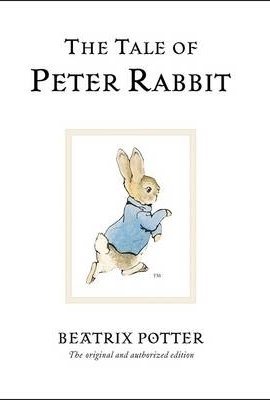Lee (2222 KP) rated Last Christmas (2019) in Movies
Nov 16, 2019
Emilia Clarke stars as Kate (short for Katerina, her original Yugoslav name), a 26 year old who’s struggling at life right now. Her nights are filled with one-night stands and sleeping over at friends houses, dragging her suitcase behind her the next morning as she either heads to work in a Covent Garden Christmas shop or off to an audition for a West end show. She’s also currently ignoring calls from her mum (Emma Thomson), disappointing her boss (Michelle Yeoh) and coming across as selfish and not really very likeable. It’s safe to say, she’s lost her way - “Why is my life so shit?!” she exclaims after yet another disaster happens.
And then one day, Kate notices a man gazing up at a bird outside the Christmas shop and goes outside to see what he’s doing. His name is Tom (Henry Golding) and he’s handsome and charming (but a bit wooden) and despite them turning out to have zero chemistry together, they strike up a relationship - because, y’know, this is a rom-com after all. Tom takes Kate on spontaneous walks down alleyways and into nearby pocket parks, making her look up regularly so that she can appreciate the world around her. He rides a bike everywhere, doesn’t have a mobile phone and disappears for days on end. Yet his presence and friendship appear to have a positive effect on Kate, who begins to start turning her life around.
The first half of the movie is just terrible. Badly written dialogue and characters in an attempt to try and recapture some kind of Love Actually spirit, but just failing. It even tries to cram in some Brexit references and a little bit of racism to highlight the plight of immigrants. Written by Emma Thomson and directed by Paul Feig, Last Christmas is said to be inspired by the music of George Michael although, aside from its namesake, not very much of it actually ends up featuring much in the movie.
If you’ve seen the trailer, then you may well have figured out the twist that comes towards the end of the movie. If not, then you’ll probably work it out pretty early on anyway. However, I’d be lying if I said that Last Christmas didn’t manage to hit me emotionally when the time came. It also managed to invoke some warm Christmas feels and spirit too, so not quite the complete disaster it started out as.
Sophia (Bookwyrming Thoughts) (530 KP) rated Independent Study (The Testing, #2) in Books
Jan 23, 2020
Malencia (Cia) Vale begins to realize failing isn't allowed, because failing means inevitable fate (but of course, that's been drilled since the first book – this time it's more along the lines of, "So much for relief. I still can't fail or I'm toast.") that she really doesn't want to find out. With the inability to remember to her Testing aside from what she recorded and beginning to question the University's selection process, Cia tries to find ways to take down the Testing peacefully without an all out "let's take down the entire government" rebellion.
At this point in the series, I'm not exactly a huge fan of the overly brilliant main character of the series. I adore Cia's brilliance, and while I think this might actually be Charbonneau's motive (because the series is based off the ACT/SAT), I feel Cia's been over-brillianted – Is that a word? No? I don't care. It is in this sense. – in the series. Cia is basically the only one excelling compared to the rest of her classmates – the average number of classes is six, Cia gets a whopping nine (and that's not counting internships). It's like Cia is set apart deliberately and from all of her classmates, which, of course, would no doubt attract the attention of Villain Squad (yes, <em>squad</em>).
Okay, I don't mind brilliant characters. It means more cruising for me and less of calling the character shallow, innocent, naïve, stupid – anything along those lines. Except...
Cia is a little whiny in <em>Independent Study</em>. She <em>wants</em> to take down the Testing and stop a rebellion, but at the same time, she doesn't want to (mainly because she doesn't want to get caught – she's already sticking out like a weed in a pretty flower garden). She's beginning to rely on Tomas a little too much – "I need to know Tomas's thoughts, I need his advice, I need his opinion on this...."
I don't like it. Even if I completely understand why Cia would do so in a place where every move and word is monitored and tracked by a group of people who can end lives within any reason.
I intend to read <em>Graduation Day</em> for the purposes of closure.
Maybe then I'll have a better understanding of Cia's excelled brilliance and a better understanding of why Cia is becoming reliant on Tomas (aside from the fact they grew up together in the same colony).
<a href="https://bookwyrmingthoughts.com/review-independent-study-by-joelle-charbonneau/"; target="_blank">This review was originally posted on Bookwyrming Thoughts</a>

for China Buy Sell Trade
Shopping and Business
App
The Chinabuy app is an online specializing in digital retail and enabling the direct acquisition and...

Thrive: Feel Stress Free
Medical
App
Welcome to Calm Island! Thrive: Feel Stress Free is the world's first evidence-based app to prevent...

Portugal Marco Polo Pocket Guide
Book
Marco Polo Portugal: the Travel Guide with Insider Tips. Fully revised and updated for 2017. Now...

The Tale of Peter Rabbit
Book
The Tale of Peter Rabbit is the original classic by Beatrix Potter. The Tale of Peter Rabbit was...

The Mammoth Book of Great British Humour
Book
A doorstopper of a collection of the very best of both contemporary and classic British wit and...

Planimeter - Field Area Measure on Map & GPS Track
Productivity and Utilities
App
Planimeter is a tool to measure land distances and areas on a map, to check bearing and...

Hidden Object Vampires Temple – Find Objects in Mystery and Fantasy Pictures
Games and Entertainment
App
Are you looking for wonderful vampire games? Do you want to become a true vampire hunter? Here is an...

Plants vs. Zombies FREE HD
Games
App
Read on for important info below! Get ready to soil your plants as a mob of fun-loving zombies is...

